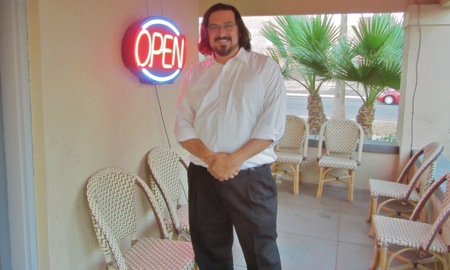According to biographer W. Jackson Bate, Dr. Samuel Johnson could write with extraordinary speed. Bate points to Johnson’s work for the London Magazine, when he was in his early thirties, and writing out Parliamentary debates as if he had recorded them verbatim, but based solely on second-hand and often fragmentary reports of the debates:
[Johnson] had always … been able to write rapidly. But now, as John Nichols said, “Three columns of the Magazine, in an hour, was no uncommon effort, which was faster than most persons could have transcribed that quantity.” Since a column there contains a little more than six hundred words, this would mean an average rate of at least eighteen hundred words an hour, or thirty a minute. On one day — “and that not a long on, beginning perhaps at noon, and ending early in the evening” — he wrote twenty columns (about twelve thousand words)…. —Samuel Johnson: A Biography, W. Jackson Bate (New York: Harcourt Brace Jovanovich, 1975; Berkeley: Counterpoint, 1998), pp. 205-206.
At my most productive, I have only been able to write about 2,500 words a day, which I found mentally exhausting; Johnson wrote nearly five times that amount, and what he wrote was of better quality than mine.
Bate goes on to quote a passage from James Boswell’s Tour of the Hebrides, in which Johnson is quoted as saying:
BOSWELL. “We have all observed how one man dresses himself slowly and another fast.” JOHNSON. “Yes, sir, it is wonderful how much time some people will consume in dressing: taking up a thing and looking at it, and laying it down, and taking it up again. Everyone should get in the habit of doing it quickly. I would say to a young divine, ‘Here is your text; let me see how soon you can make a sermon.’ Then I’d say, ‘Let me see how much better you can make it.’…
Since I am in the process of writing a sermon (in which Dr. Johnson makes a guest appearance), I had better take his advice, and begin writing quickly.



